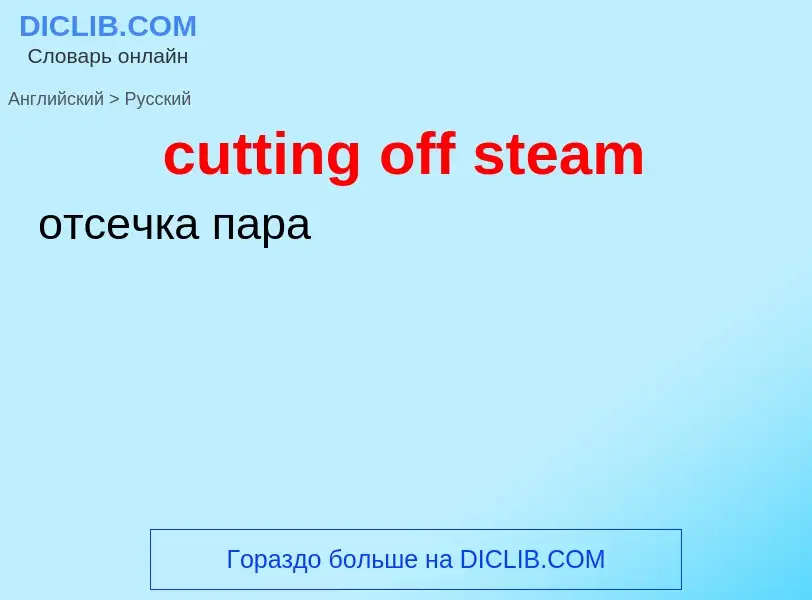Tradução e análise de palavras por inteligência artificial ChatGPT
Nesta página você pode obter uma análise detalhada de uma palavra ou frase, produzida usando a melhor tecnologia de inteligência artificial até o momento:
- como a palavra é usada
- frequência de uso
- é usado com mais frequência na fala oral ou escrita
- opções de tradução de palavras
- exemplos de uso (várias frases com tradução)
- etimologia
cutting off steam - tradução para russo
[sti:m]
общая лексика
пар
стерилизовать паром
варить на пару
двигаться при помощи пара
запаривать
конденсационный
напаривать
напарить
паровой
паровыпускный
парогенерирующий
паропромывочный
пароструйный
пропаривать
стерилизацинный
струйковый
нефтегазовая промышленность
обрабатывать паром
перегонять с паром
прилагательное
[sti:m]
общая лексика
паровой
устаревший
допотопный
существительное
[sti:m]
общая лексика
(водяной) пар
пар
развить энергию
испарение
разговорное выражение
энергия
собирательное выражение
энтузиазм
синоним
глагол
общая лексика
выделять пар или испарения
двигаться (посредством пара)
двигаться
идти (о поезде и т. п.
обыкн. steam out
steam across
steam along)
идти на всех парах
мчаться
готовить
варить на пару
запотевать
отпотевать
отпаривать
выпускать пар
подниматься в виде пара
двигаться посредством пара
идти под парами
запотевать, отпотевать
подвергать действию пара
выпаривать
разговорное выражение
развивать бешеную энергию
злиться
кипеть
специальный термин
обрабатывать (водяным) паром
парить
пропаривать
текстильное дело
декатировать
собирательное выражение
развивать большую энергию, 'жарить'
синоним
Definição
Wikipédia
In a steam engine, cutoff is the point in the piston stroke at which the inlet valve is closed. On a steam locomotive, the cutoff is controlled by the reversing gear.
The point at which the inlet valve closes and stops the entry of steam into the cylinder from the boiler plays a crucial role in the control of a steam engine. Once the valve has closed, steam trapped in the cylinder expands adiabatically. The steam pressure drops as it expands. A late cutoff delivers full steam pressure to move the piston through its entire stroke, for maximum start-up forces. But, since there will still be unexploited pressure in the cylinder at the end of the stroke, this is achieved at the expense of engine efficiency. In this situation the steam will still have considerable pressure remaining when it is exhausted resulting in the characteristic “chuff chuff” sound of a steam engine. An early cutoff has greater thermodynamic efficiency but results in a lower Mean effective pressure so less average force on the piston and is used for running the engine at higher speeds.


![Fireless steam locomotive]]<br>Despite the resemblance to a boiler, note the lack of a chimney and also how the cylinders are at the cab end, not the chimney end. Fireless steam locomotive]]<br>Despite the resemblance to a boiler, note the lack of a chimney and also how the cylinders are at the cab end, not the chimney end.](https://commons.wikimedia.org/wiki/Special:FilePath/Dampfspeicherlok Genthin Henkel Werk.jpg?width=200)
![diagram]] for steam diagram]] for steam](https://commons.wikimedia.org/wiki/Special:FilePath/HS-Wasserdampf engl.png?width=200)

